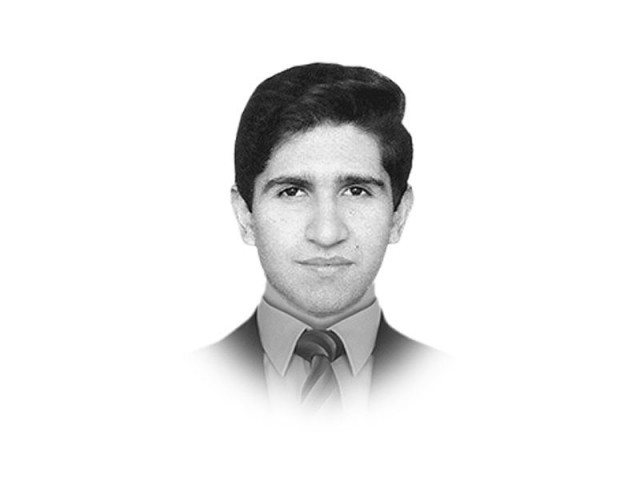The under researched Pakistani
Cultural, societal nuances condition the average Pakistani to live within the paradigms of the Pakistani society.

The writer is a PhD in conflict studies and an independent security analyst. He has also taught at the University of Central Lancashire, UK
Of course, there are stimuli like ideologies which shape attitudes, and commonly, many of these ideologies will be absorbed at home, at work or in peer groups, outside the purview of the state. The effects of these cannot be denied but, in essence, these groupings or stimuli are cumulative effects of individuals coming together as groups, or individuals shaping the attitudes of their children as parents, or as teachers to students and so on. No doubt, there are larger factors which act at regional or group levels to change the personality of individuals, but what I am suggesting is that there are strong individual stimuli felt at home, at school, at work in the society in general, which can mould an individual's thought.
Arguably, these are as the building blocks of the same building seen in different facets. Using this analogy, the stimuli shaping the mindset of the common man are largely considered the neglected, unexplored back side of the building, as opposed to the more glamorous exterior of the radical who gets more press. The exterior patina of the Afghan jihad-hardened radical, or American actions (directly or indirectly) radicalising individuals is much more up front and in your face and is thus considered much more in the mainstream. This detracts from the comprehension needed to assimilate the Pakistani reality and limits research on many areas. For instance, I believe that cultural and societal conditions in Pakistan that have frustrated the basic psychological needs of Pakistanis have escalated the potential for violence. This is not very well-documented, either in Pakistan or in the West. Thus, even seminal western works like Professor Anatol Lieven's Pakistan; a hard country focus more on the opinions of the elite in the country who are different from the masses, or the radical, who is anyways the extreme manifestation of the common man at cross purposes with society.
I am quite concerned about the impact of society on culture on the Pakistani individual. I am also concerned about the impact of Pakistan's culture and society on groups, whose basic building blocks are individuals, since the fulfilment of basic needs cannot just be an individual matter in exclusivity to the society. Leaving aside the potential for conflict within groups made up of individuals, there are a number of stresses that a Pakistani individual, or any individual for that matter, will face in everyday living.
Thus, the way that culture dictates everyday life, relations between groups, the institutions of society, and the existence and nature and impact of local communities on the individual and families will provide a framework of reference as to how these people will live their lives. This will impact upon how basic desires and needs are met, how children are treated and in turn treat elders, will delineate the poor from the rich and how they will act , and will also delineate social structures and statuses of the poor and rich and their social networks. An obvious negative impact is that it may sometimes rigidly define statuses, so as to affirm or diminish people as individuals depending on social status, as has happened in Pakistan or any other developing country. Social grouping status wise is so ingrained in the minds of even the most seemingly liberal Pakistanis that they would not willingly opt out of this mindset, even if societal conditions were conducive to producing an equitable society.
Thus, there are certain cultural and societal nuances ingrained within the mind of an average Pakistani which condition him to live within the paradigms of the Pakistani society. Such conditioning is usually necessary for a person to survive within a society, but may also be based on not very liberal predicates. Sometimes, as in the case of not only Pakistanis but many other societal groups as well, this conditioning can also produce a retrogressive mentality resistant to change or innovation. More research needs to be done on the building block of our country, the common Pakistani.
Published in The Express Tribune, February 10th, 2013.















COMMENTS
Comments are moderated and generally will be posted if they are on-topic and not abusive.
For more information, please see our Comments FAQ